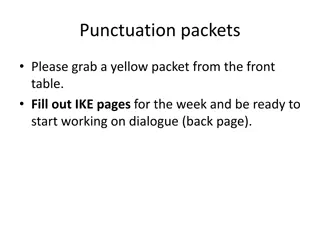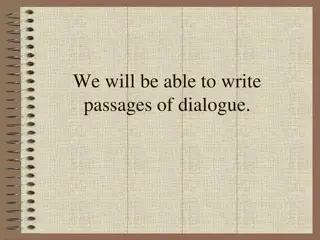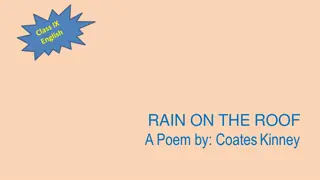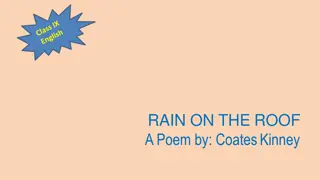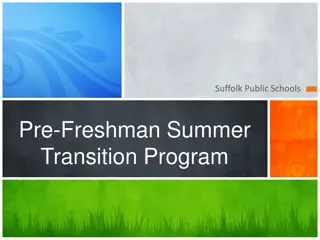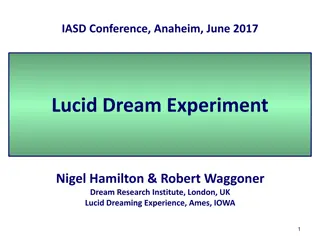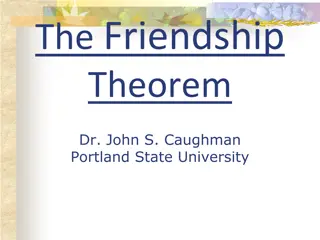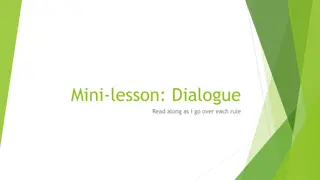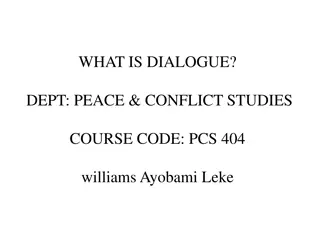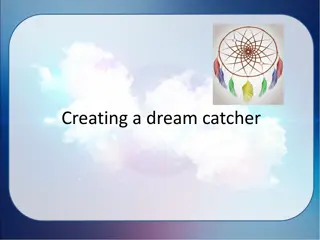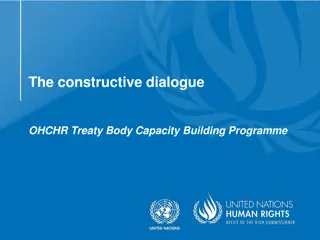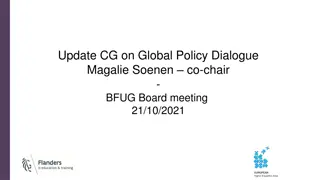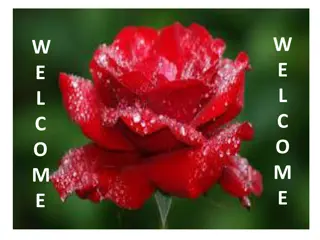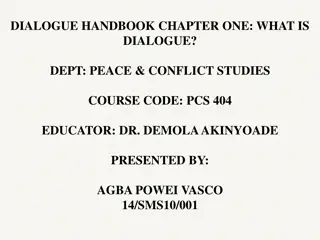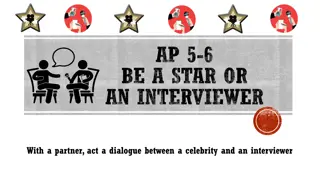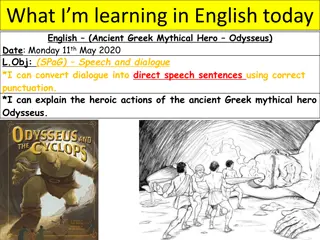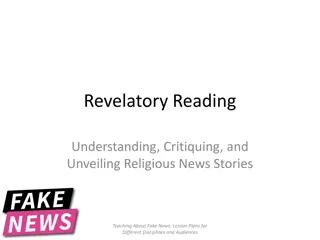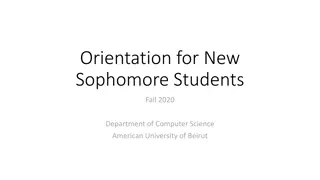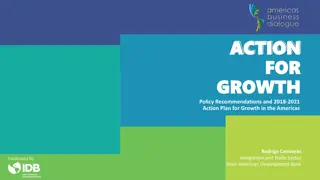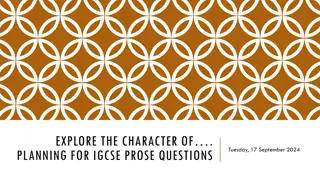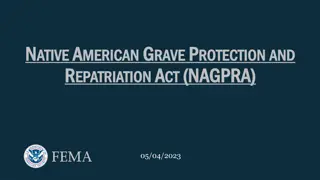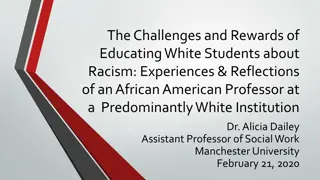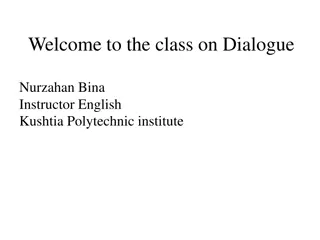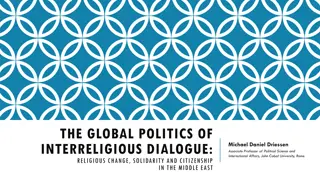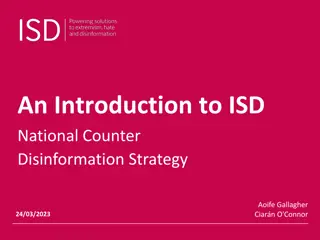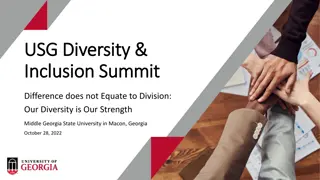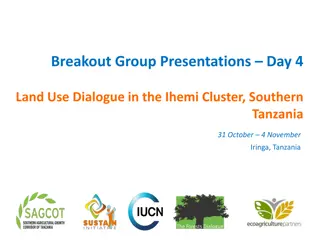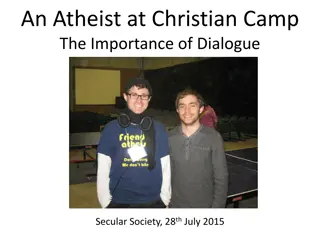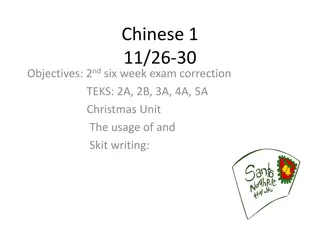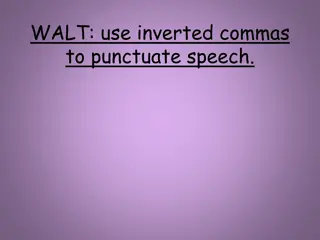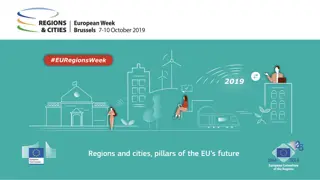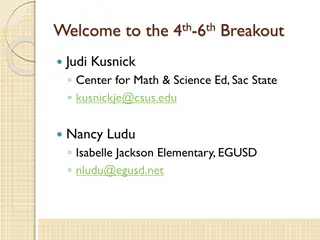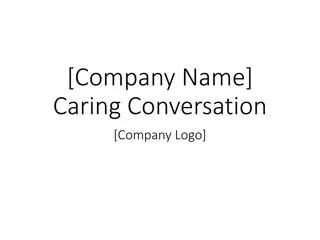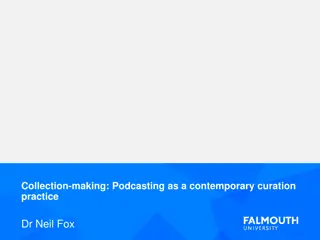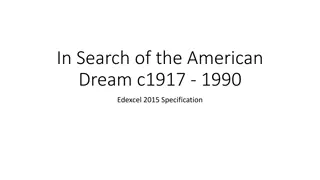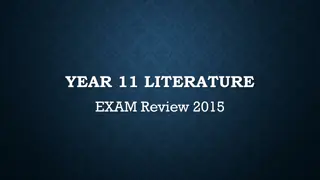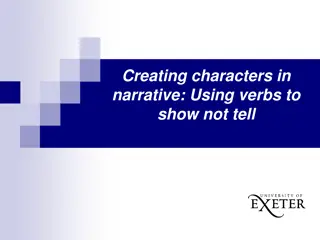Reflections on Coates' Freshman Dialogue: Unveiling the American Dream
Coates' "Freshman Dialogue" delves into the harsh truths of American history, exposing the dark realities of racism, exploitation, and the legacy of the American Dream. Through poignant reflections on the Dream, the Disaster of racism, the Black body, and the transformative power of questioning, Coates challenges readers to confront uncomfortable realities and reevaluate the narratives shaping our society.
Download Presentation

Please find below an Image/Link to download the presentation.
The content on the website is provided AS IS for your information and personal use only. It may not be sold, licensed, or shared on other websites without obtaining consent from the author. Download presentation by click this link. If you encounter any issues during the download, it is possible that the publisher has removed the file from their server.
E N D
Presentation Transcript
Freshman Dialogue The Dream Being white, was not achieved through wine tastings and ice cream socials, but rather through the pillaging of life, liberty, labor and land; through the flaying of backs; the chaining of limbs; the strangling of dissidents; the destruction of families; the rape of mothers; the sale of children; and various other acts meant, first and foremost, to deny you and me the right to secure and govern our own bodies. (8)
Freshman Dialogue The Disaster Americans believe in the reality of race as a defined, indubitable feature of the natural world. Racism the need to ascribe bone-deep features to people and then humiliate, reduce, and destroy them inevitably follows from this inalterable condition. In this way, racism is rendered as the innocent daughter of Mother Nature, and one is left to deplore the Middle Passage or the Trail of Tears the way one deplores an earthquake, a tornado, or any other phenomenon that can be cast beyond the handiwork of men. (7)
Freshman Dialogue The Black Body The spirit did not steal away on gospel wings. The soul was the body that fed the tobacco, and the spirit was the blood that watered the cotton, and these created the first fruits of the American garden. And the fruits were secured through the bashing of children with stovewood, through hot iron peeling skin away like husk from corn The bodies were pulverized into stock and marked with insurance. And the bodies were an aspiration, as lucrative as Indian land, a veranda, a beautiful wife, a summer home in the mountains. For the men who needed to believe themselves white, the bodies were the key to a social club, and the right to break the bodies was the mark of civilization. (104)
Freshman Dialogue The Question I have spent much of my studies searching for the right question by which I might fully understand the breach between the world and me. I have not spent my time studying the problem of race race is itself just a restatement and retrenchment of the problem You have seen in this conversation that the struggle has ruptured and remade me several times over in Baltimore, at the Mecca, in fatherhood in New York. The changes have awarded me a rapture that comes only when you can no longer be lied to, when you have rejected the dream. But even more, the changes have taught me how to best exploit that singular gift of study, to question what I see, then to question what I see after that, because the questions matter as much, perhaps more than the answers. (116)
Freshman Dialogue 1) The Dream - What does Coates mean by the Dream ? Who are the dreamers and what are some of their main characteristics? What do you think about the dream upon concluding this work? 2) The Disaster - Why does Coates repeatedly revert back to metaphors of natural disaster when describing racism? What does Coates mean when he writes that race is the child or racism, not the father ? Is racism something inevitable or as he writes inalterable in his view? 3) The Black Body - What does it mean to live in a black body? What does it mean to call the destruction of the black body an American heritage? Is Coates saying that there is no progress, no change across time? Do Coates and his son inhabit the same black body? 4) To Question - What does Coates mean by study ? What is his animating question throughout this book? What kinds of answers does he provide us? Is he a pessimist, a realist, or even an optimist?


